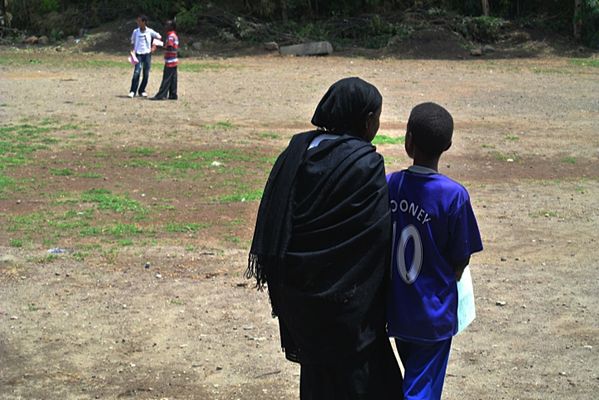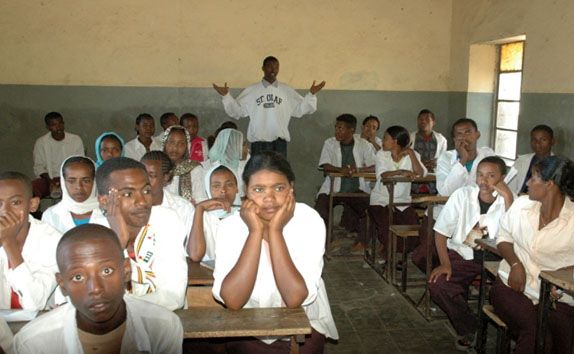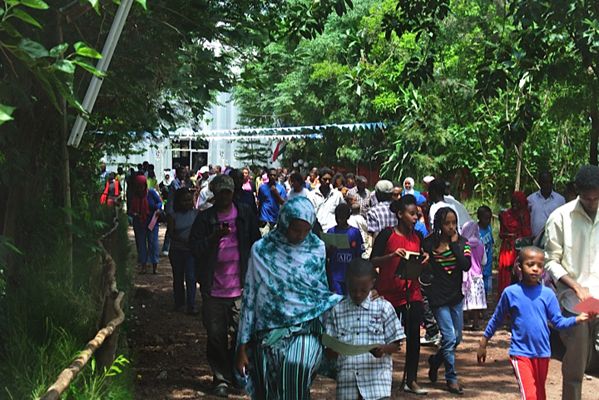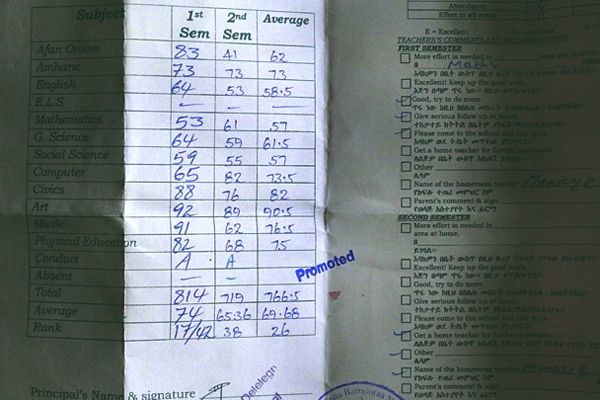Here in America, the land of freedom, life, liberty and the pursuit of happiness, we take everything for granted rather than appreciating what we have. We tend to want more and more. As our own American transcendentalist philosopher and essayist Ralph Waldo Emerson wrote in his "Self-Reliance" essay, men “measure their esteem of each other by what each has, and not by what each is.”
However, in other parts of the world that are less individualistic or materialistic people cannot be measured by what they have–for many have nothing but hope.
Teaching in Ethiopia, one of the poorest nations in the world, was the most humbling and eye-opening experience of my life. This blog will give you a snapshot of Adama #2 Middle School, where I taught for six weeks. The school is located in Adama, 100 km southeast of Addis Ababa. I will discuss the life of the students and teachers both at school and at work, focusing on one extraordinary student and her environmental science teacher.
A brief demographic background about the school: There are five languages spoken, Amharic (the national language), Oromo, Somali, Gurage and (some) English. The two major religions are Islam and Christianity. It was very difficult to choose to tell about one student and one teacher, but the stories of Zuhura and her environmental science teacher Abebe still echo in my mind.
The daily life of Zuhura and the majority of students at Adama #2 Middle School usually starts around 5:00 am. As the oldest child and the only daughter of the family Zuhura, 12, is expected to clean the house and fix breakfast before her younger brothers and sisters wake up. She leaves the house around 6 in the morning, starting her 5 km journey to her school, located in the heart of the city.
Even though Zuhura is just 12, she is the backbone of her family. She is expected to perform well beyond what is usually expected of those her age. There is only one way to describe this and that is sadness. Zuhura has no choice but to succeed academically and to labor in harsh conditions as do the majority of her peers who also help support their families.
What makes Zuhura unique is that she not only supports her family with housekeeping while educating herself to become a teacher, but she also works Saturdays and Sundays with her environmental science teacher, Abebe, in a sugar factory 50 km from the city. Even though international and Ethiopian government child labor laws protect minors and prohibit them from working in harsh conditions, the local government and factory management do not follow these policies or protocols.
The daily lives of the majority of teachers in Adama #2 Middle School are quite similar to the lives of their students. For instance, Abebe shares a similar story. As a father of five children, Abebe works from sunrise to sunset to provide for his family. The school not only expects him to teach long days but also to prepare lesson plans and attend day and evening meetings. On weekends he must work in the factory.
After many conversations with teachers, I found that waking up early in the morning before sunrise, preparing breakfast for children, walking, riding a horse or donkey to school, and working in the sugar factory on weekends was a common routine for all teachers.
"I wish there were many educational resources and [more] support, so that I could focus on educating my students who have nothing but hope and provide a quality life for my family,” said. “If Ethiopia wants to have a sustainable economy and wants to grow and compete in global market, it needs to invest in education. In the long run it will help not to depend on global aid.”
From what I have gathered and witnessed for the last six weeks, the Ethiopian government needs to invest more in education. The schools need classroom materials, as well as better pay and benefits for all teachers, so that teachers can be effective. Minors need to be protected from working under harsh conditions. If these simple steps are taken I am very optimistic that the lives of Adama #2 Middle School students, teachers, and the local residents will improve tremendously.











